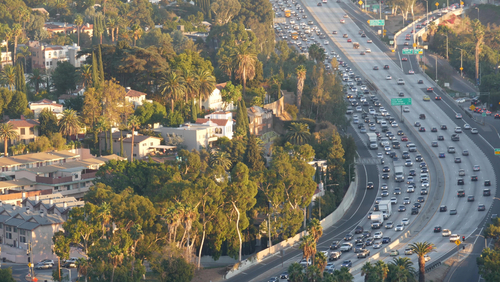
The California Transportation Commission (CTC) announced Thursday it had invested nearly $2 billion into the state’s transportation infrastructure and approved another $2.3 billion for future investments.
Using money from the Infrastructure Investment and Jobs Act, as well as money from state funding, the state said it would initially invest $1.7 billion into three projects – the Trade Corridor Enhancement Program (TCEP), the Solutions for Congested Corridors Program (SCCP) and the Local Partnerships Program (LPP).
“SB 1 and IIJA funding are helping rebuild and transform California’s transportation future, and we are putting that investment to work to create a system that allows all of us to travel in an equitable, safe and sustainable way,” Tony Tavares, Caltrans director, said.
The state will spend $1.1 billion for the TCEP which will provide grant funding for 26 projects supporting infrastructure improvements on high freight traffic corridors with the goal of increasing their efficiency, improving their safety and building an equitable and sustainable freight transport system. More than a third of the projects invest in zero-transmission technology components that will support a zero-emission freight transportation system including light, medium and heavy zero-emission vehicle infrastructure.
The state will also allocate $507.4 million to the SCCP which will fund 10 multimodal projects to reduce congestion throughout the state; and $142.4 million to the LPP for 11 projects that support counties, cities, districts and regional transportation agencies where voters have approved fees or taxes dedicated to transportation.
The CTC also approved spending an additional $2.3 billion on future projects, including $1.75 billion for programs established by SB 1, and another $540 million to fund 134 active transportation projects sponsored by local metropolitan planning organizations ranging from new bikeways and sidewalks to improvements to intersections, crosswalks, shade and signage. More than 90 percent of the $540 funding for the 2023 MPO Active Transportation Program will fund projects in disadvantaged communities.